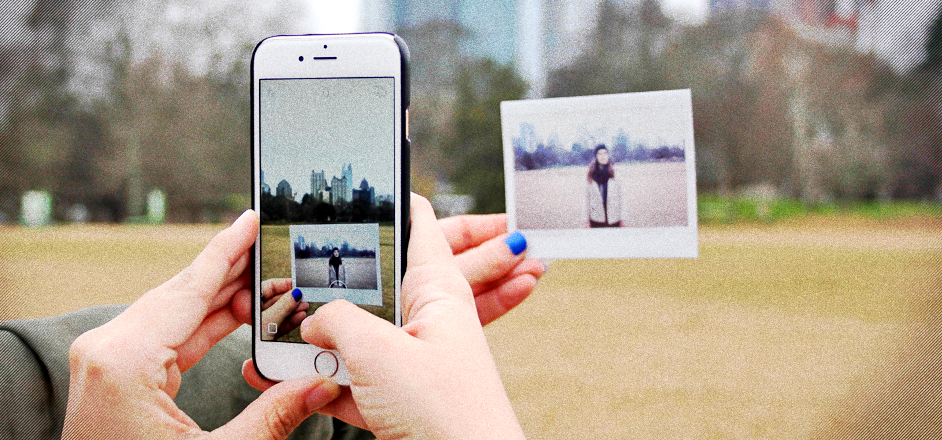Cameras are everywhere. In almost every pocket everywhere in the world. The ability to photograph something is almost as ubiquitous as the ability to scream things or eat stuff. And social media platforms like Facebook, Instagram and Snapchat have cultivated a furious and almost urgent compulsion in many, to photograph everything, every moment, everywhere they go.
“Pics or it didn’t happen!”
But what effect does that have on the human experience? When one takes a step back from the concert, or the wedding, family gathering, beautiful view, to put their camera between themselves and the moment at hand? Does it change their perception of the event?
Yes, says a study done by NYU Stern, and in more ways than you might imagine.
“Taking photos actually draws people into an experience,” says Alixandra Baracsch, one of the lead authors of the study, titled, "Photographic Memory: The Effects of Volitional Photo Taking on Memory for Visual and Auditory Aspects of an Experience." “It makes you more immersed, it makes time pass more quickly and that has a positive effect on enjoyment.”
Barasch is an assistant professor of marketing at NYU stern and a psychologist by training.
As she explains, because photography focuses our attention to the visual aspects of our environment, it can boost a person’s engagement in an experience and enhance their enjoyment of it.
But there are a couple of caveats to that.
“Because you’re putting that energy into the visual it can detract from your memory of auditory cues,” explains Barasch. So, it’s a tradeoff. Even though you might remember more visual details, your memory of the auditory ones won’t be as vivid.
Not only that, says Barasch, but when people are focused on taking pictures just to share them, it actually has the opposite effect.
“When you’re thinking about taking a photo for sharing, because you want to get likes and shares, then it can actually harm your enjoyment of the experience,” she continues. A person taking photos just for sharing is thinking about self-presentation, instead of absorbing of the sensory cues around them — essentially shutting their environment out, to stare into a mirror.
So, it really comes down to intention. If you’re taking a picture of something because you’re genuinely excited by it, the act of photographing that thing might help you remember it better and enjoy it more. If you’re doing it out of a need for social approval, not so much.
The strangest part of all this, though, is not in the study’s findings but in their implications. The concept that something as simple as photography can change your experiences and memories at all, is disorienting. Because, whether it be for good or bad, your perception of the event changes when you’re taking pictures of it. For all intents and purposes, that simple act is changing your reality.
And it gets stranger. As Barasch describes, when a person takes a picture of something it can actually shift the perspective from which they remember it.
“Taking photos, especially when you know they’re going to be shared … it actually puts you in a third person perspective,” she says. “So, often, people actually remember the experience like an outsider watching it.”
Almost as if the memory belongs to the camera and not the photographer.
What is the cumulative effect of that on a life? How do all those subtle changes in perspective and memory add up over the years? WHAT IS REALITY!?
Well, maybe if we keep trying to take pictures of it, we’ll find out. But that’s doubtful. More likely, as people keep trying to pin down every moment of their lives with Snaps and Instagram Story posts, as our memories of the past are twisted, enhanced, detracted from by our ability to do so, we’ll likely all lose touch with The Truth completely and drift off unanchored onto rolling seas of madness and amnesia.
But hey, at least there will be a photographic record of the journey there.



Leave a Reply